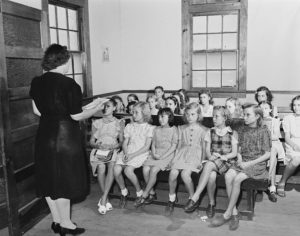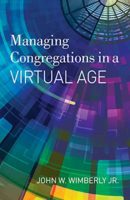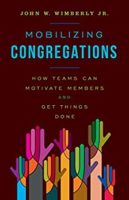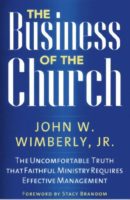Regardless of their theological beliefs, churches struggle with some common issues. Of these, one of the most surprising to me has to do with the future of Sunday schools. No one lacks commitment to educate children and youth in the faith. However, more and more congregations are questioning whether a traditional Sunday school is the way to do it.
Leaders express their concerns about Sunday school with a certain amount of guilt. “Do you know other congregations that are struggling to keep their Sunday school alive? Do you know of any who are going so far as to consider ending Sunday school?” When I respond “Yes!” I hear a sigh of relief.
Different dates are offered as to when Sunday schools began in the United States, but most historians agree that they are approximately 200 years old. I find the dating important because those two centuries represent approximately 10 percent of Christian history. For 90 percent of Christian history, churches were educating their children and youth in some manner or another that was not what we consider today a “traditional Sunday school.” Is it possible that we will increasingly be educating our kids without a Sunday school for the next 1800 years of Christian history?
The reasons congregations are struggling with Sunday school is sometimes related to size and the age of the congregation. When I first went to Washington, D.C.’s Western Presbyterian Church in 1983, there was no Sunday school or nursery because almost everyone was over the age of 60. Many congregations today have similar demographics, leaning heavily toward the oldest generations.
Even when there are some kids in the congregation, the number may be so small as to make it challenging to develop an organized Sunday school. A not unusual situation today is a congregation of 250 with 20 kids. If half of them show up on any given Sunday (and that would be a pretty good showing), they only have ten kids, who may range from toddlers to middle school. How does one develop a Sunday school with those kinds of numbers and ages?
Some larger congregations have the same problems sustaining a traditional Sunday school. They have multiple worship services spreading across Saturday and Sunday. They are wondering “How does one create educational experiences for children across such a timeframe?”
What is causing the growing discussion about whether or not Sunday Schools should continue? It relates to the same forces that impact Sunday morning worship attendance. Sunday morning is filled with interesting things to do. Many people are choosing to do something other than come to worship. As a result, we see a growing number of congregations offering worship at times and days in addition to Sunday morning. Trying to create and staff a Sunday school for different days and times just complicates an already challenging task.
As congregations consider the future of their Sunday schools, a few things are particularly important to the discussions taking place:
- Educating our children and youth is not synonymous with a Sunday school program. There are many ways to educate our kids. Sticking with a model that clearly isn’t working will hinder, not help, us to reach our goal of teaching the faith to younger generations.
- Most Sunday schools rely on a classroom model of educating that may not be the best way to reach our kids today. The use of and comfort level with cell phones, tablets and computers may lead us to new, better ways to teach the faith than a uniform curriculum used in classrooms.
- The risks of saying, “We are going to try something other than Sunday school” are real. Pastors and lay leaders can be caricatured as abandoning children and youth. This creates the need for denominational conversations so a congregation eliminating traditional Sunday school won’t appear to be an outlier.
Will Sunday schools survive the first quarter of the 21st century? Only time will tell. The more important question is: How will our generation teach the faith to our children and youth?
John Wimberly is an experienced pastor and consultant. As a consultant, he has worked with congregations and judicatories on strategic planning, staff designs for the 21st century, and congregational growth as well as financial and administrative management. He has MBA, MDiv, and PhD (theology) degrees. His books focus on effective management and leadership. John believes congregations can have a bright future!




